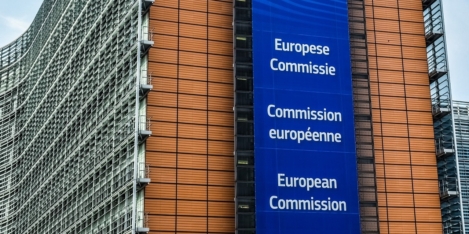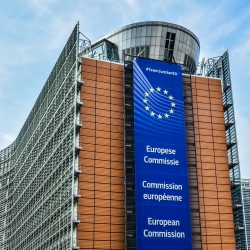To provide the best experiences, we use technologies like cookies to store and/or access device information. Consenting to these technologies will allow us to process data such as browsing behaviour or unique IDs on this site. Not consenting or withdrawing consent, may adversely affect certain features and functions.
The technical storage or access is strictly necessary for the legitimate purpose of enabling the use of a specific service explicitly requested by the subscriber or user, or for the sole purpose of carrying out the transmission of a communication over an electronic communications network.
The technical storage or access is necessary for the legitimate purpose of storing preferences that are not requested by the subscriber or user.
The technical storage or access that is used exclusively for statistical purposes.
The technical storage or access that is used exclusively for anonymous statistical purposes. Without a subpoena, voluntary compliance on the part of your Internet Service Provider, or additional records from a third party, information stored or retrieved for this purpose alone cannot usually be used to identify you.
The technical storage or access is required to create user profiles to send advertising, or to track the user on a website or across several websites for similar marketing purposes.
 A new analysis of the UK’s job market claims there were 52 percent fewer available jobs listed for professionals with technology skills at the end of 2019, compared to six months earlier. Accenture’s UK Tech Talent Tracker analysed data from LinkedIn’s Professional Network. This shows 78,000 job vacancies advertised that require skills in emerging technologies, down from 162,000 last June. This decrease was driven by a 64 percent reduction in the number of advertised jobs for data analysts. (more…)
A new analysis of the UK’s job market claims there were 52 percent fewer available jobs listed for professionals with technology skills at the end of 2019, compared to six months earlier. Accenture’s UK Tech Talent Tracker analysed data from LinkedIn’s Professional Network. This shows 78,000 job vacancies advertised that require skills in emerging technologies, down from 162,000 last June. This decrease was driven by a 64 percent reduction in the number of advertised jobs for data analysts. (more…)








 The European Commission has put forward a strategy to promote the development of AI and robotics while putting people first and defending European values and rights. The strategy acknowledges that AI can open up new opportunities for businesses and bring solutions to challenges such as climate change. However, it aims to address the social, legal and ethical impact of new technology.
The European Commission has put forward a strategy to promote the development of AI and robotics while putting people first and defending European values and rights. The strategy acknowledges that AI can open up new opportunities for businesses and bring solutions to challenges such as climate change. However, it aims to address the social, legal and ethical impact of new technology. 
 Nine in ten freelancers in the UK feel the move to freelancing has improved their quality of life, a
Nine in ten freelancers in the UK feel the move to freelancing has improved their quality of life, a
 Insider data breaches are a major concern for 97 percent of IT leaders, according to new research. About three quarters believe that employees have put data at risk in the past 12 months accidentally (78 percent) or intentionally (75 percent). When asked about the implications of these breaches, more than two in five said financial damage would be the area of greatest impact.
Insider data breaches are a major concern for 97 percent of IT leaders, according to new research. About three quarters believe that employees have put data at risk in the past 12 months accidentally (78 percent) or intentionally (75 percent). When asked about the implications of these breaches, more than two in five said financial damage would be the area of greatest impact. 
 Each flexible coworking space created in a smaller town or suburban area reduces carbon emissions by an average of 118 tonnes a year thanks to shorter commutes, an international
Each flexible coworking space created in a smaller town or suburban area reduces carbon emissions by an average of 118 tonnes a year thanks to shorter commutes, an international 
 Rents for new, Grade A office space are likely to rise in many parts of London this year, a property consultancy has predicted. According to
Rents for new, Grade A office space are likely to rise in many parts of London this year, a property consultancy has predicted. According to 


 Nearly six in 10 British workers (58 percent) worry about disappointing their manager, with more than a third (36 percent) saying they rely on praise from their boss to help boost their confidence at work, a survey has claimed.
Nearly six in 10 British workers (58 percent) worry about disappointing their manager, with more than a third (36 percent) saying they rely on praise from their boss to help boost their confidence at work, a survey has claimed. 
 New research has been published aimed at understanding trends, practices and priority areas for improving employees’ experience and creating better places to work. The report,
New research has been published aimed at understanding trends, practices and priority areas for improving employees’ experience and creating better places to work. The report, 


 Nearly a third of freelancers are planning to stop contracting in the UK because the changes to IR35 due in the private sector in April,
Nearly a third of freelancers are planning to stop contracting in the UK because the changes to IR35 due in the private sector in April, 








February 18, 2020
Curiosity killed the stat: why we should avoid becoming slaves to data
by Anthony Tasgal • Comment, Technology, Workplace design
Hands up. How many of you spend much/most of your time peddling data, charts and other fact-based information? And how much time do you spend challenging yourself, learning new ideas, indulging your curiosity and feeling a sense of surprise and fulfilment? And finally how much of the inquisitive, itchy child do you feel your job appeals to rather than the “only- 30-more-years-of-wage-slavery-if-I’m-lucky” mindset?
(more…)